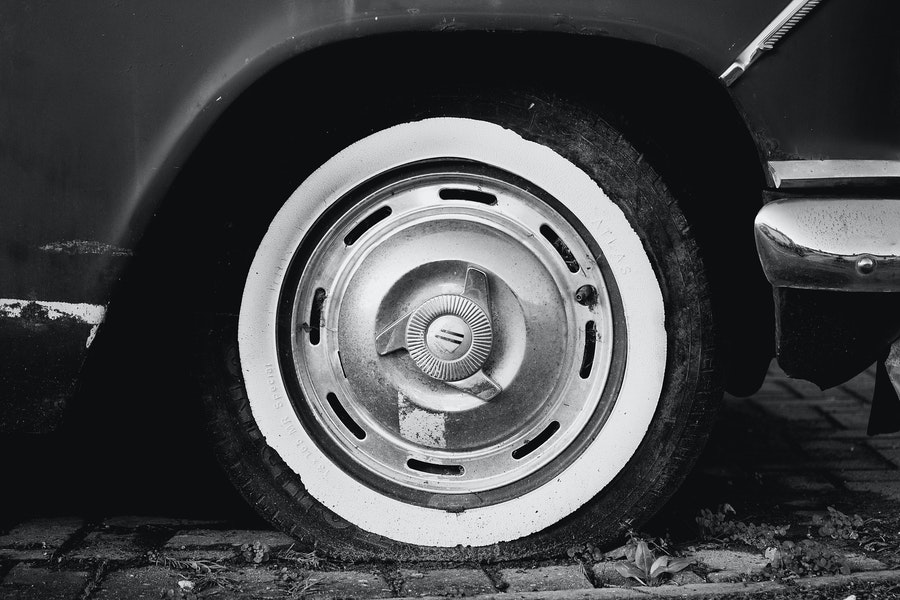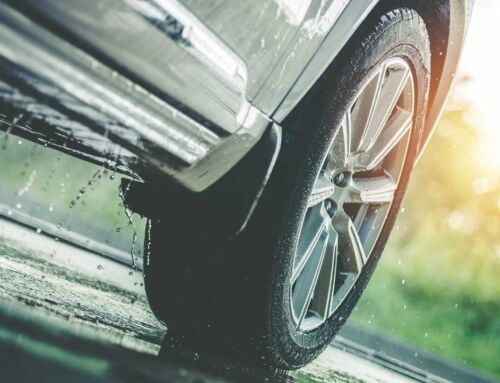Although winters in Sonoma County aren’t snowy, they are rainy and wet which means slippery road conditions.
Aside from slowing down and allowing extra time for travel, it’s important to check your tires and make sure they are properly inflated, especially this time of year.
Safety for you and others on the road starts with your tires and here are three important reasons why.
Safety First with Properly Inflated Tires
Under-inflated tires skid instead of stop on wet roads.
Because under-inflated tires produce friction instead of traction, it takes longer for the vehicle to stop. The higher your speed, the more friction the tires produce and the longer it will take you to stop on a wet, slippery road.
In the case of heavy rain, the large amount of water reduces contact between your tires and the road. This significantly reduces traction and causes you to hydroplane, skid or slide down the road.
Tires should be inflated to the pounds per square inch (PSI) rating as recommended by the tire manufacturer. You can find the recommended PSI on a sticker usually found on the driver’s side door jamb or in the vehicle’s owner manual.
Increase Lifespan of Tires
Under-inflated tires lack the maximum air to support a fully round shape, which causes added wear and tear on the tires. It takes more energy for the vehicle to get up to and maintain driving speeds.
Low air pressure causes the tread of some tires to wear out faster than others, especially if the tires are at different PSI levels. The uneven tire treads cause an uneven ride. It can be more challenging to steer and handle a vehicle with under-inflated tires.
According to the National Highway Traffic Safety Administration, properly inflated tires can extend the average life of a tire by 4,700 miles.
More Fuel Efficient and Better Gas Mileage
Because it takes less energy to run a vehicle with properly inflated tires, it saves you money on fuel.
Under-inflated tires work harder to maintain highway speeds, and this lowers your miles per gallon rating. According to the NHTSA, you can save up to $.11 per gallon by properly maintaining your tires.
Helpful Tire Tips
Frequent Tire Inspections
Check tires daily or weekly for anything that may cause damage, especially if you travel in areas where there is road work or construction. There may be nails, glass, rocks or other items that may lodge into your tires, causing damage like a slow leak.
At a minimum, check the tire pressure once a month. It’s important to check tires if heading out for a road trip. To be safe, don’t forget to check the air pressure in the spare tire.
Tire Rotation
Rotating your tires help prolong the life of your tires by preventing uneven wear on the treads.
Tires should be rotated every 5,000 – 8,000 miles. Check manufactures specifications.
Vehicle Alignment
If your vehicle’s suspension is out of alignment, it can seriously affect your tires.
Alignment issues make it difficult to keep the vehicle from pulling from one side to another, which causes uneven wear of tire treads and an overall shortened tire life span.
While there are many safety and cost-saving benefits to keeping your tires properly inflated, unfortunately accidents still happen.
When they do, reach out to Downtown Autobody in Rohnert Park, CA for all your auto body repair and restoration needs.





